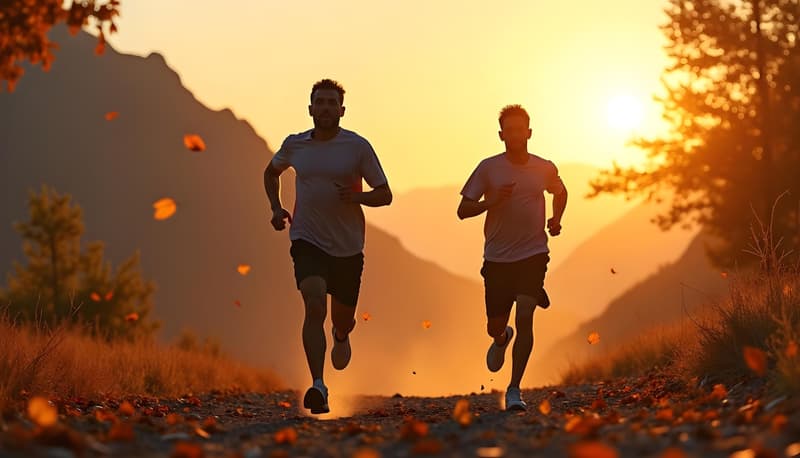Indonesia, an archipelago of breathtaking beauty and vibrant culture, presents a unique set of considerations for maintaining physical well-being, particularly for those unaccustomed to its tropical climate.
The consistently high temperatures and humidity, while characteristic of this equatorial nation, necessitate a thoughtful and adaptive approach to fitness. With non-communicable diseases (NCDs) like cardiovascular issues and diabetes on the rise, impacting an estimated 25% of the adult population, and a significant proportion (over 70% based on recent data) not meeting global physical activity guidelines, the urgency to promote active lifestyles here is undeniable.
The allure of Indonesia often lies in its natural wonders, from the volcanic landscapes of Java to the pristine beaches of Bali and the biodiverse rainforests of Sumatra and Kalimantan. These environments inherently offer numerous avenues for physical activity, ranging from trekking up Mount Bromo at dawn, catching waves in Bali’s Seminyak, or diving into the vibrant coral reefs of Raja Ampat, to exploring the lush rice paddies by bike. However, the tropical climate introduces a significant factor that cannot be ignored: the impact of heat and humidity on the human body.
From an environmental physiology standpoint…
The high ambient temperatures, coupled with elevated relative humidity, significantly impede the body’s primary thermoregulatory mechanism: evaporative cooling through sweating. Prolonged exposure to these conditions, particularly during physical exertion, can rapidly lead to dehydration, debilitating heat exhaustion, and even life-threatening heatstroke, posing considerable risks, especially during strenuous physical activity.
Statistical data from Indonesia’s Ministry of Health consistently highlights the increasing prevalence of non-communicable diseases (NCDs), such as cardiovascular diseases, diabetes, and obesity. While these trends are influenced by various socioeconomic and dietary factors, physical inactivity plays a significant role. Recent findings from the 2023 Indonesia Health Survey (“Survei Kesehatan Indonesia” or SKI) underscore that a substantial proportion of the Indonesian adult population does not engage in sufficient physical activity as recommended by global health guidelines. This underscores the urgent need to promote and facilitate active lifestyles across all demographics, including the expat community who may face additional acclimatisation challenges.
The Indonesian government has recognised the importance of promoting healthy lifestyles through various national policies and initiatives. The Healthy Community Movement (“Gerakan Masyarakat Hidup Sehat” or GERMAS) is a nationwide campaign aimed at increasing awareness and participation in physical activity, healthy eating, and regular health check-ups. This initiative encompasses various programmes, including community-based exercise programmes, promotion of traditional sports like pencak silat, and the integration of physical activity into school curricula. While these efforts are commendable, their effective implementation, particularly in diverse urban and rural settings, and outreach to all segments of the population, including expats, necessitate a multi-stakeholder approach that integrates public health initiatives with environmental planning and infrastructure development.
For expats navigating the Indonesian climate…
Adapting their fitness routines is paramount. Activities that might be easily undertaken in cooler climates may require modification or alternative timing in the tropics. Exercising during the cooler parts of the day, such as early morning (before 8 AM) or late afternoon (after 5 PM), can significantly mitigate the risks associated with heat exposure. Opting for indoor, air-conditioned facilities for more intense workouts can also provide a safer environment.
Expats often find challenges in locating gyms with familiar equipment or understanding local fitness class schedules, sometimes leading to reliance on hotel facilities or online programmes. From a public health perspective, this highlights a need for better information dissemination and potentially standardised facility guides. Understanding local healthcare access and having comprehensive health insurance is also vital for expats, given the potential for heat-related emergencies or other health issues, which can be exacerbated by pre-existing conditions or insufficient acclimatisation.
Paying meticulous attention to hydration by consuming ample fluids before, during, and after physical activity is crucial. Electrolyte replacement drinks may also be beneficial, especially after prolonged or intense exercise. Understanding local healthcare access and having comprehensive health insurance is also vital for expats, given the potential for heat-related emergencies or other health issues.
Beyond individual adaptations, the environment itself can be leveraged to promote an active lifestyle in a sustainable manner. Indonesia’s diverse landscapes offer unique opportunities for physical activity that are inherently enjoyable and culturally enriching. Exploring local hiking trails like those around Ubud, participating in traditional dances, or engaging in water sports such as aqua aerobics classes offered at many resorts or simply swimming laps in a cool pool not only provides physical benefits but also fosters a deeper connection with the local culture and environment.
Community-based initiatives that promote walking and cycling infrastructure in urban areas, such as the growing network of car-free Sundays in major cities and dedicated cycling lanes in new developments, can also contribute significantly to increasing daily physical activity levels. For example, the thriving running clubs in Jakarta, often meeting in shaded parks or along designated paths, demonstrate how local communities adapt and thrive.
Moreover, the social and cultural aspects of Indonesia can be harnessed to encourage fitness. Group activities, such as community sports leagues, traditional martial arts classes, or even joining a local senam (aerobics) group in a public park, provide social support and motivation, making exercise a more enjoyable and sustainable habit. The emphasis on communal well-being in Indonesian culture can be a powerful tool in fostering a collective commitment to health and fitness.
Technology also presents opportunities to promote active lifestyles in Indonesia. Mobile applications that track physical activity, provide workout routines tailored to the tropical climate, and connect individuals with local fitness communities can be valuable tools. Furthermore, digital platforms can disseminate information on heat safety, hydration guidelines, and accessible fitness resources. Imagine an app that maps out shaded walking routes in your neighbourhood or lists public pools with cool water!
In conclusion…
Embracing an active lifestyle in Indonesia’s tropical climate requires a nuanced understanding of the environmental challenges and a proactive approach to adapting fitness routines. While the heat and humidity necessitate careful planning and precautions, the country’s rich natural environment and vibrant culture offer a plethora of opportunities for engaging in enjoyable and beneficial physical activities.
Continued efforts in promoting health education, improving infrastructure, and fostering a culture of active living are essential to combat the rising burden of NCDs and ensure a healthier future for all — both natives and expats — who call Indonesia home.
This opinion piece was written by Taufiq Ihsan, an assistant professor at the Environmental Engineering Department of Universitas Andalas, Indonesia. Any opinions expressed in this article are those of the author and do not necessarily reflect the views of Indonesia Expat.




